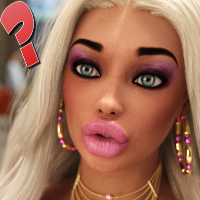Faustus wrote:This is quite a facile reading of the character. As many have often pointed out, the genius of Goku is that while he does not have a trace of malice in his heart his purity is not a moral purity and does not entail righteousness; and by the same token even as his ever escalating obsessions lead him incidentally to gamble with others' safety increasingly as the series goes on he continues all the while (and just as incidentally) to improve the world around him, converting deadly rivals into allies. Thus the same basic cocktail of traits -- his essential innocence and his wuxia drive -- simultaneously proves both his virtue and his vice. It's a curious and engrossing effect and perhaps the only one of its kind.
I get that intuitively folks tend to want their hero especially free of moral ambiguity in a show made for children, but Toriyama's not interested in moralizing to his audience -- only in developing the character naturally and plausibly out of his basic traits and having everyone else respond according to their own personalities per the author's own artistic intuitions. I'd much rather this than if he were to -- say, by offing Goku -- contrivedly superimpose some banal (karmic?) moral justice system on a creative universe that does not warrant it. If Goku winds up learning his lesson by the end of this arc, great, because that's plausible and follows organically from his current trajectory. But I don't need to see him punished by the end of it.
I'll agree with the thread title, however, if only because it's true Goku's probably the most routinely mischaracterized of Super's characters.
Actually, going by the show, Goku is righteous otherwise he wouldn't have become a Super Saiyan God. Of course, what is 'righteous' for a Saiyan, may not be the same righteousness we humans think of.
This is the same culturally. For example, Superman is considered a righteous person since he fights for the good and refuses to kill because he values life, even the lives the most evil person. However, in a lot of societies, especially older ones, Superman isn't seen as righteous. He is seen as irresponsible since his refusal to kill indirectly leads to more deaths. like the arguments you see about why Batman won't kill the Joker. For their society, the right thing to do is to kill the highly dangerous person for the greater good, despite your own personality morality. If you don't, you're being selfish.
Avatar: The Last Airbender actually tackled this subject in a very mature and realistic way when Aang agonized about not wanting to kill the Fire Lord. One one hand, it was morally alright for Aang to value the life of everyone, even the Fire Lord, and didn't want to kill him. At the same time, as the Avatar, it was his sacred duty to restore balance and not killing a highly dangerous and sociopathic person was seen as Aang putting his own moral code ahead of everyone. Basically, both sides of the argument was righteous for different reasons.







